Petrochemicals Enzymes Carbonfiber Cars 23-06-2020 - Arhive
Petrochemicals Enzymes Carbonfiber Cars
-Crude Oil Prices Trend

-What is the new US Plastic Waste Reduction and Recycling Act?
Earlier this week, US representatives for Michigan and Ohio, Haley Stevens and Anthony Gonzalez, introduced the Plastic Waste Reduction and Recycling Act. Packaging Gateway looks into how this legislation could affect US-based packaging companies.
The Plastic Waste Reduction and Recycling Act will guide the director of the Office of Science and Technology Policy to establish a plastic waste reduction and recycling programme to improve the global competitiveness of the US recycling industry.
The act aims to reduce plastic waste, encourage research into and technologies for recycling infrastructure, and ensure US leadership in national and international standards development.

-Graphene-enhanced smart textiles developed for heat adaptive clothing
New research at the University of Manchester’s National Graphene Institute focuses on graphene-enhanced smart adaptive clothing which can lower the body temperature of the wearer in hot climates. Petrochemicals Enzymes Carbonfiber Cars
The team of scientists has created a prototype garment to demonstrate dynamic thermal radiation control within a piece of clothing by utilizing the remarkable thermal properties and flexibility of graphene. The development also opens the door to new applications such as, interactive infrared displays and covert infrared communication on textiles.
The human body radiates energy in the form of electromagnetic waves in the infrared spectrum (known as blackbody radiation). In a hot climate it is desirable to make use the full extent of the infrared radiation to lower the body temperature which can be achieved by using infrared-transparent textiles. As for the opposite case, infrared-blocking covers are ideal to minimize the energy loss from the body. Emergency blankets are a common example used to deal with treating extreme cases of body temperature fluctuation.
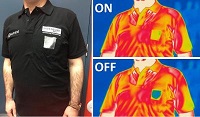
-PolyOne strengthens its sustainability portfolio in Europe
PolyOne announced it is adding production of both post-industrial recycled nylon grades and bio-based thermoplastic elastomers in Europe. This strengthened sustainability portfolio will support circular economy goals and provide additional eco-conscious material options for EU customers. Petrochemicals Enzymes Carbonfiber Cars
Europe now accounts for 25 percent of global bioplastics production, a figure set to increase to 30 percent by 2024, according to the European Bioplastics Association. Fueling this growth, in part, are public commitments from brands across a range of industries to increase their use of recycled plastics.

-An ignored supply-demand issue of caprolactam
Beginning 2020, Caprolactam market had been heavily hit down by bearish demand due to the new coronavirus impact. And prices went through free fall when transaction dropped to freezing low. But since early April 2020, China domestic CPL prices had significantly risen by 3,150yuan/mt or 42% during April 1 and June 17, 2020. And even when Sinopec cut down benzene nomination in early June, CPL market extended the increase. This caused intense discussions internally.
There were some questions frequently asked as caprolactam price continued rocketing up: why CPL price could rose so much when China domestic plants were operating at such high rate? Is Market demand really good? Petrochemicals Enzymes Carbonfiber Cars
There are actually two key questions in the complex. Frist, why CPL prices could sustain such long-term increase when the average operating rate stood high? –It was because of the demand for CPL from nylon 6 chip plants was even larger!
Petrochemicals Enzymes Carbonfiber Cars
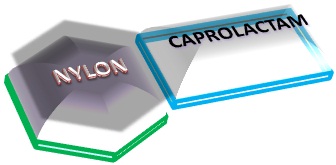
-Korean firm develops antimicrobial copper film to neutralize COVID-19
An antimicrobial copper film developed by a Korean company has demonstrated strong neutralizing activity against COVID-19, adding firearms to Korean battle with the epidemic. Petrochemicals Enzymes Carbonfiber Cars
According to CleanCU, a South Korean company developer of antimicrobial plastic materials, on Thursday, a test conducted by Korea University Hospital showed the company’s film branded as K COPPER PLUS that contains antimicrobial copper neutralized 77.8 percent of the coronavirus within 8 hours and up to 97.2 percent within 24 hours compared to a comparator film.
In the test, where three coronavirus groups that contain 100,000, 10,000 and 1,000 units, respectively, were exposed to CleanCU’s antimicrobial copper film for 24 hours at room temperature, the viruses lost 97.2 percent, 90.6 percent, and 96.7 percent, respectively, in infection ability, according to the company.
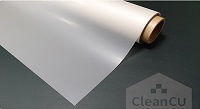
-Wittmann Group will skip Fakuma 2020
The Group cites health concerns and uncertainty about compliance with regulations as the reason Petrochemicals Enzymes Carbonfiber Cars
Austrian plastics machinery manufacturer Wittmann Group has announced that it will not be exhibiting at the Fakuma trade fair in Friedrichshafen this year.
According to a statement from the management on the company’s site, the decision not to participate – ‘in the event of a Fakuma 2020 trade fair actually being held’ – was the result of ongoing uncertainty as to how a trade fair booth could be set up and run in compliance with the necessary safety measures then in force. The decision was not an easy one, the Group stressed, but, as it said in the statement: “Since, as is generally known, large gatherings of people in particular are an ideal breeding ground for a renewed outbreak of the COVID-19 virus, the Wittmann Group would rather not expose its associates and visitors to such an incalculable health risk.”

Clariant has developed a range of deep, dark colours that normally would have required the use of carbon black pigments that makes them undetectable by the near-infrared (NIR) sensors used in automated polymer sorting systems at recycling centres.
The new Clariant colour concepts, developed in its ColorWorks design and technology centre near Milan in Italy, now makes it possible to explore a darker colour space entirely without the use of carbon black. Petrochemicals Enzymes Carbonfiber Cars
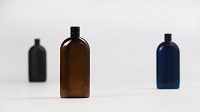
-Sugarcane regions urged to look at producing bioplastics, but viability a concern
As Queensland cane farmers and mills grapple with low sugar prices, a North Queensland politician has renewed calls for the industry to diversify by manufacturing bioplastics.
Bioplastics are made from plant-based materials and are appealing as eco-friendly wrapping due to their ability to break down.
The Member for Mackay, Labor’s Julieanne Gilbert, said cane-farming regions were well placed to pioneer the industry. Petrochemicals Enzymes Carbonfiber Cars
“We have got an abundance of resources right here in Mackay,” she said.
“We’ve got feedstock we can use from our sugarcane crops, we’ve got plenty of water, we’ve got power, we’ve got land … and highly skilled people.”
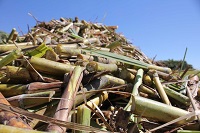
-Pak PYMA decries 2.5% additional regulatory duty on yarn
The Pakistan Yarn Merchants Association (PYMA) recently expressed its frustration at the government for not offering relief on imported raw materials to the textile industry and small and medium enterprises (SMEs) in the 2020-21 budget. Association chairman Danish Hanif also termed the imposition of a regulatory duty of 2.5 per cent on raw materials ‘disastrous’. Petrochemicals Enzymes Carbonfiber Cars
Hanif urged the government to provide equal business opportunities based on a uniform policy for the export, import and industrial sectors.
Around 70 per cent of the need for polyester filament yarn (PFY), an important raw material for weaving, knitting and home textiles, is met by imports. PFY was subjected to a higher customs duty of 11 per cent and additional customs duty of 2 per cent and PYMA has been opposing this for three years. However, it has not been abolished, he was quoted as saying by Pakistani media reports.
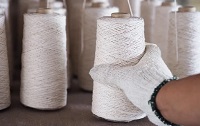
-Cars with eco-friendly interiors
Printed and digital download photos available
Manufacturers are pushing to introduce more recycled materials into their cars.
Jack Evans rounds up some of the brands embracing the trend.
Everyone is being encouraged to recycle more than ever, such as households looking to reduce the amount of single-use plastics used.
It’s a valiant endeavour too, with the aim of lowering the detrimental impact we have on the environment striking a chord with many. Petrochemicals Enzymes Carbonfiber Cars
The message is hitting home with car manufacturers too.

-30Motivational Pictures
